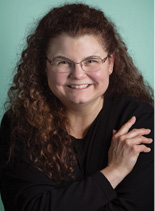 For the past ten years or so, I’ve been in that phase of life in which my parents are aging, having health issues, and passing away. As a result, I’m interacting significantly more with the healthcare system than at any other time in my life, and I’ve found it to be terrifying. I won’t get into the gory details, but I’ve spent more than four months of this year navigating the morass that is healthcare—from doctors’ offices to hospitals, from emergency rooms to skilled nursing. And the insurance… oh, the insurance!
For the past ten years or so, I’ve been in that phase of life in which my parents are aging, having health issues, and passing away. As a result, I’m interacting significantly more with the healthcare system than at any other time in my life, and I’ve found it to be terrifying. I won’t get into the gory details, but I’ve spent more than four months of this year navigating the morass that is healthcare—from doctors’ offices to hospitals, from emergency rooms to skilled nursing. And the insurance… oh, the insurance!
In 2009, when my stepmother needed a cancer treatment that would put her in the hospital for a week, I learned that leaving someone in a hospital by themselves is a very dicey proposition. As a result, when first my mom, and then my dad, ended up hospitalized for long periods late last year and early this year, I was compelled to (once again) play the role of healthcare advocate—a tiring, thankless, necessary job.
In the end, I might not have known how to treat them, but I was the only person who had the 360-degree picture of every complaint, response, diagnosis, medication, and treatment. Nurses and doctors came and went. Specialists saw only the specialty. I got to see and hear it all. I kept copious notes. I questioned every treatment and medication. I wanted to see test results. I did a ton of Googling of terms, conditions, medications, side effects, and treatments—and then I asked even more questions. In short, I was a complete pain in the you-know-what.
When my father left skilled nursing, he needed assisted living and couldn’t afford it on his own. Thankfully, Maine has an insurance program for that—if you can navigate the application, the insurance jargon (what the heck is “cost of care,” again?), and the five-year forensic accounting scrutiny. The rules, regulations, and coverage were yet another new education for me.
There was so much that my parents—and I, as their advocate—needed to know that we had to figure out on our own. The experience of illness and hospitalization is traumatizing enough, and I found the “information experience” within that trauma to be nearly non-existent.
This whole situation has left me feeling that it is definitely time for the experience designers, the writers, the editors, the visual communicators—all of us—to descend on the medical industry and start applying our techniques and knowledge to this space. It is such a critical industry! Thus, I am thrilled to introduce this issue of Intercom! Guest editor Dr. Kirk St.Amant provides us with a breadth of experiences in medical and health communication. If you’ve ever thought about diving into medical writing, this issue is a gold mine!
Kirk brings a wealth of insight to the magazine in this topic area. He is a Professor and the Eunice C. Williamson Endowed Chair of Technical Communication at Louisiana Tech University (United States) and an Adjunct Professor of International Health and Medical Communication with the University of Limerick (Ireland).
Kirk has also worked on projects in industry—for companies such as Medtronic, VERITAS Software, the Braun Corporation, Unisys, and for nonprofit organizations.
Kirk is also an STC Fellow, the Vice-Chair of the Association for Computing Machinery (ACM) Special Interest Group on Design of Communication (SIGDOC), and serves as the Interim Editor of Communication Design Quarterly—the ACM SIGDOC’s peer-reviewed research publication.
Thank you to Kirk, for editing this informative issue, and to Sarah Brenckman Leida, Bryan Tutt, Deborah Hemstreet, Candice Welhausen, Russell Kirkscey, and Elizabeth Angeli for sharing their insights in their feature articles.
In this issue, you’ll also find some great columns:
- Scott Abel interviews Alexis Haselberger for “Meet the Change Agents” and skillfully extracts lots of great insight and actionable advice for time management and productivity.
- Michelle Corbin defines gobbledygook and jargon in “Editing Matters” and exhorts us to think consciously about our audience and their terminology needs.
- Alan Porter moves his “Convergence Conversation” into the realm of health and medical communication.
- Kirk St.Amant’s “Health and Medical Communication” guest edited by Porschia Parker, features an interview with three members of the STC Health and Medicine SIG, discussing medical communication careers.
And don’t forget the Society Pages! In addition to the regular Society news and in the spirit of this issue’s theme, Heidi Lawrence takes us on a deep-dive tour of the Health and Medicine SIG.
Healthcare is such an important conversation, and I believe that technical communicators can have a huge positive impact! So I encourage you to have a conversation about it. Whether at a conference like the STC Summit, on the STC website in response to this article, or on social media—anywhere and everywhere—conversations like these are the way that we continue to develop and grow and make a difference in the world!
Until next time, to your health!
—Andrea L. Ames


